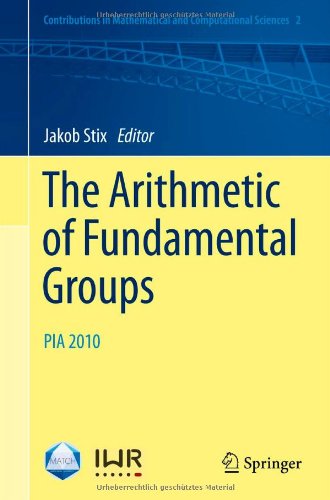

Most ebook files are in PDF format, so you can easily read them using various software such as Foxit Reader or directly on the Google Chrome browser.
Some ebook files are released by publishers in other formats such as .awz, .mobi, .epub, .fb2, etc. You may need to install specific software to read these formats on mobile/PC, such as Calibre.
Please read the tutorial at this link: https://ebookbell.com/faq
We offer FREE conversion to the popular formats you request; however, this may take some time. Therefore, right after payment, please email us, and we will try to provide the service as quickly as possible.
For some exceptional file formats or broken links (if any), please refrain from opening any disputes. Instead, email us first, and we will try to assist within a maximum of 6 hours.
EbookBell Team

4.7
16 reviewsIn the more than 100 years since the fundamental group was first introduced by Henri Poincaré it has evolved to play an important role in different areas of mathematics. Originally conceived as part of algebraic topology, this essential concept and its analogies have found numerous applications in mathematics that are still being investigated today, and which are explored in this volume, the result of a meeting at Heidelberg University that brought together mathematicians who use or study fundamental groups in their work with an eye towards applications in arithmetic. The book acknowledges the varied incarnations of the fundamental group: pro-finite, ℓ-adic, p-adic, pro-algebraic and motivic. It explores a wealth of topics that range from anabelian geometry (in particular the section conjecture), the ℓ-adic polylogarithm, gonality questions of modular curves, vector bundles in connection with monodromy, and relative pro-algebraic completions, to a motivic version of Minhyong Kim's non-abelian Chabauty method and p-adic integration after Coleman. The editor has also included the abstracts of all the talks given at the Heidelberg meeting, as well as the notes on Coleman integration and on Grothendieck's fundamental group with a view towards anabelian geometry taken from a series of introductory lectures given by Amnon Besser and Tamás Szamuely, respectively.